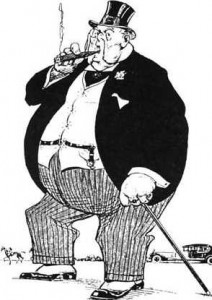Statistically, an Angel Investor or a venture capital firm that invests in ten different companies may see one of the companies take off and exceed a return of 1,000%, or ten times the investment. Two of the companies will do just okay and do little more than break even, while the remaining seven investments will lose most if not all the invested capital. At some point, the profits returned from the one successful investment have to not only cover the loss of the seven investments that went bust but also return a portfolio profit to the investor.
Entrepreneurs are angel investors of sorts, with an investment portfolio of one company. On the other side, the non-investor looks at the one successful investment and says the investor or successful entrepreneur’s profits are way too much. They believe that excessive profit is somehow inherently unfair and that there must be a way to take some of that profit from the investor and redistribute it to the working class through higher wages or higher taxes. They do not see the money that the angel investor invested in the seven companies that were a total loss.
Such thinking is pervasive among the vast majority of working-class American citizens, who do not understand how investing in a small business really works. Ultimately this thinking leads to the image of a fat, cigar-smoking investor making huge sums of money at the expense of the lowly workers, who toil endlessly to make the investor rich while they struggle to put food on the table for their families. Nothing could be further from the truth since the investor paid the salary of the workers out of his invested funds. When the investment failed, the investor lost his money and now has nothing to show for it. Except for, perhaps, an expensive lesson in business. The thinking that investors are taking advantage of workers undermines the very investments in small business ventures that pay many workers’ salaries. Even when an investment spawns a successful business, its profit window can be limited.
Google makes a lot of money today, but for how long? Google supplanted Yahoo, which supplanted AOL, which supplanted Prodigy. Prodigy is now out of business. Investors often have to make their investment return in a short time, known as the “Return to Exit”. In the short term, it may look like investors earn a huge return, but considering overall success rates and short profit windows, returns are often very similar to the market as a whole. It is simply unfair to look at a single year and say that investors’ profits are unfairly large.
Is your view of small business investments realistic?












